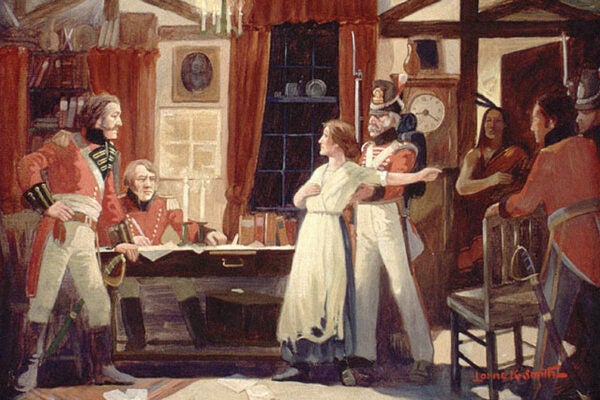Hillary Clinton was the first female candidate for president from a major party, but she is far from the first woman to run for the office. That honor belongs to Victoria Woodhull (1838-1927), the “magnetic healer,” stockbroker, publisher, freethinking free-love advocate, who was nominated by the Equal Rights Party in 1872. Curiously, it’s not known how many votes she actually received.
However many votes Woodhull got, none of them would have been from women because at the time neither Woodhull nor any other women could legally vote. They could be arrested if they even tried. Woodhull argued that women already had the right to vote simply because they were citizens.
As it happened, Woodhull herself was in jail on election day, but it wasn’t for trying to vote. Though Woodhull “was willing to stoop to threats of blackmail,” observes Helen Lefkowitz Horowitz, the charge was “obscenity.” In a fascinating article, Horowitz delineates the conflict over sexuality in 1870s America: Woodhull was on the “radical edge” of the spectrum, a suffragist and free-love advocate, insisting “that women and men had the right to sexual expression unconstrained by law and public opinion.” She also “fought against hypocrisy and the double standard. She affirmed women’s right to love.” Little wonder that Woodhull was known to her enemies, including Anthony Comstock, as “Mrs. Satan.”
When she was denounced by the Reverend Henry Ward Beecher, the nation’s most prominent religious figure, Woodhull retaliated by exposing Beecher’s adulterous affair. She argued that Beecher was a hypocrite for living the free-love lifestyle while denouncing it from the pulpit. The resulting Beecher-Tilden adultery case was the scandal of the first half of the 1870s.
But Woodhull’s great nemesis wasn’t Beecher, it was Comstock, the man who engineered her arrest for obscenity at the beginning of his long reign as “the nation’s most important censor of public morals.” Woodhull would be exonerated by a jury, but she still lost her fight against “Comstockery,” and in 1877 she left the U.S. for England, never to return.
Comstock found other battles to fight. An 1873 federal law named after him made it illegal to send “obscene, lewd, or lascivious” material by mail, including anatomy textbooks and birth control information. For four decades, Horowitz notes, “federal and state legislation conferring police powers on him enabled Comstock to reshape America’s public sexual culture fundamentally.”
“The American public conversation about sexuality took a truncated shape within new and narrower boundaries,” after Woodhull’s routing, and, perhaps not coincidentally, the 19th Amendment, giving women the vote, wasn’t ratified until 1920. Yet some of Woodhull’s advanced thinking about women and men and sexuality feels mainstream today, right down to opposition by the forces of contemporary Comstockism.
Editors’ note: This introduction to this story was updated on August 5, 2020.







